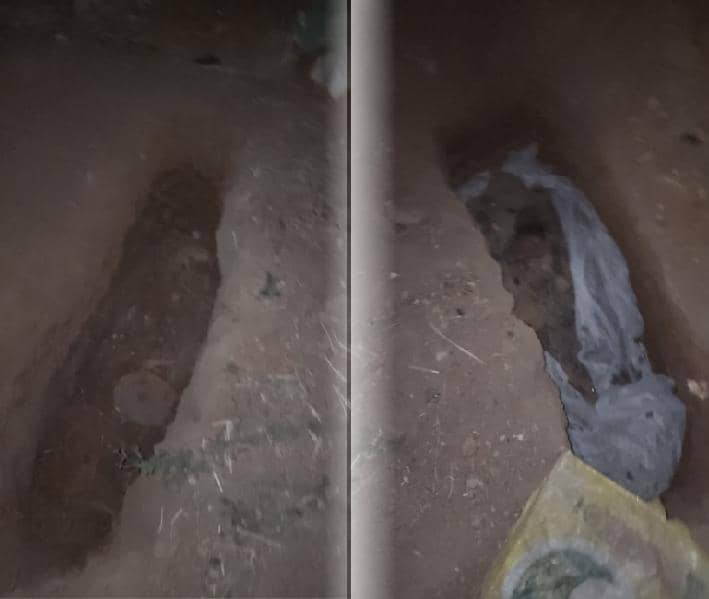News
Osun: Uproar As Man Allegedly Sells Family’s House, Exhumes Father, Mother’s Corpses

Authorities of the Osun State Police command have begun investigation into the alleged selling of a house belonging to late Pa Azeez Rauf by one his sons, identified as Mutiu Rauf Okunola, who also exhumed his parents corpses buried in the premises.
Findings indicated that the sold property, located around Dada Estate area of Osogbo, Osun State capital had generated ripples amongst the children of the deceased.
The children of Late Mr and Mrs Azeez Rauf accused their sibling, Rauf Mutiu Okunola, also known as Tato of selling their late parents’ property and exhuming their corpses without the consent of the remaining children.
The dispute was said to have begun when Mrs Adedoyin Rukayat, one of the surviving children, discovered that the family property had been sold by Mutiu. Apart from selling the house, Rukayat, who spoke to journalists, also alleged that her brother exhumed the remains of their parents without informing or consulting other children—Rukayat, Fatimo, Khadijat, Teslim, and Qouadr Rauf.
Disturbed by these actions, Rukayat reported the case to Dada Estate Police Station in Osogbo, which led to the arrest of Mutiu on December 31, 2024
CityMirrorNews reliably gathered that policemen, who stormed the premises to arrest the suspect stopped further exhumation of their mother’s remains after the corpse of Late Azeez Rauf had already been dugged out from the grave.
The police ordered the return of both bodies to their original locations, behind the premises and arrested Rauf after investigation revealed that he had sold the house.
When contacted, the Police Public Relations Officer (PPRO) of Osun State Police command, CSP Yemisi Opalola, confirmed the incident, saying Rauf was arrested but later granted bail.
She explained that “the matter is being handled by the State Criminal Investigation Department (SCID). The suspect is on bail now because the offence is bailable. Investigation is still ongoing. But if they are unable to resolve the matter amicably, the matter will be charged to court.”
-

 News4 days ago
News4 days agoOsun Assembly Aspirant Pledges People-centred Representation For Boripe/Boluwaduro constituency
-

 News4 days ago
News4 days agoBandits Attack Kwara Communities, Kill Villagers, Burn Houses
-

 News4 days ago
News4 days agoOsun: APC Inaugurates LG Renewed Hope Ambassadors For 2026, 2027 Polls
-

 News2 days ago
News2 days agoAdeleke Commissions Minaret University, Reaffirms Osun’s Leadership in Education


